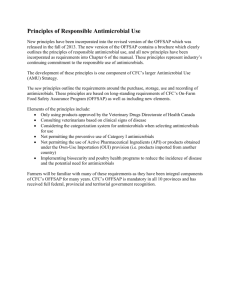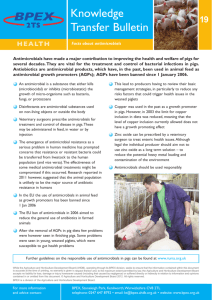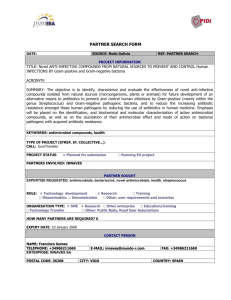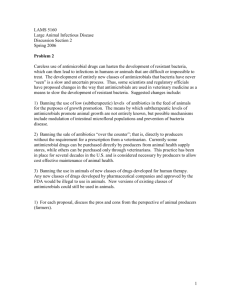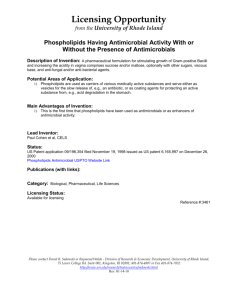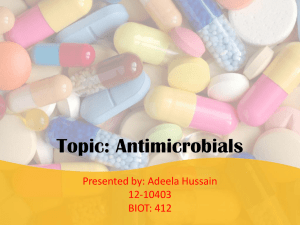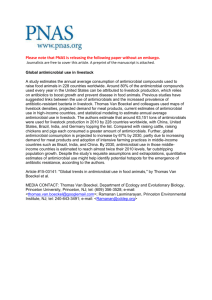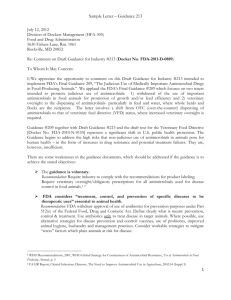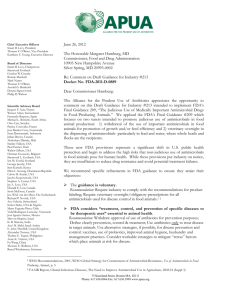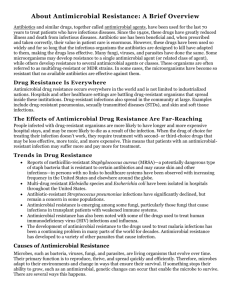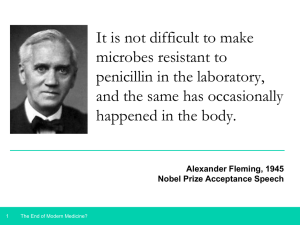ABDose – explanation for healthcare professionals
advertisement
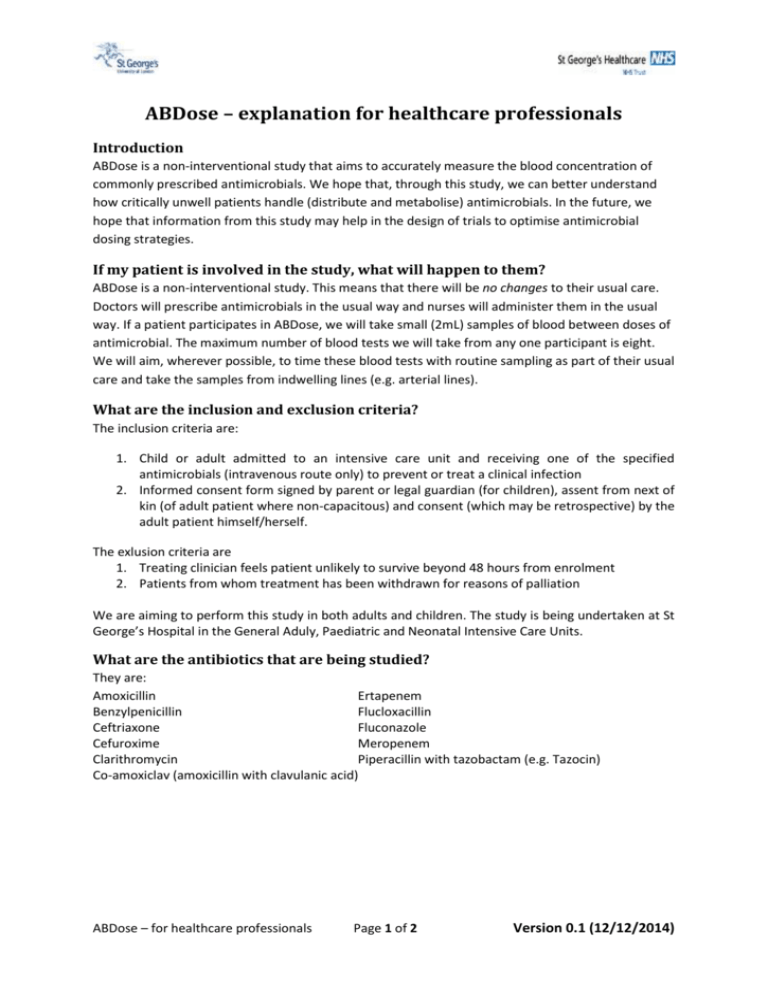
ABDose – explanation for healthcare professionals Introduction ABDose is a non-interventional study that aims to accurately measure the blood concentration of commonly prescribed antimicrobials. We hope that, through this study, we can better understand how critically unwell patients handle (distribute and metabolise) antimicrobials. In the future, we hope that information from this study may help in the design of trials to optimise antimicrobial dosing strategies. If my patient is involved in the study, what will happen to them? ABDose is a non-interventional study. This means that there will be no changes to their usual care. Doctors will prescribe antimicrobials in the usual way and nurses will administer them in the usual way. If a patient participates in ABDose, we will take small (2mL) samples of blood between doses of antimicrobial. The maximum number of blood tests we will take from any one participant is eight. We will aim, wherever possible, to time these blood tests with routine sampling as part of their usual care and take the samples from indwelling lines (e.g. arterial lines). What are the inclusion and exclusion criteria? The inclusion criteria are: 1. Child or adult admitted to an intensive care unit and receiving one of the specified antimicrobials (intravenous route only) to prevent or treat a clinical infection 2. Informed consent form signed by parent or legal guardian (for children), assent from next of kin (of adult patient where non-capacitous) and consent (which may be retrospective) by the adult patient himself/herself. The exlusion criteria are 1. Treating clinician feels patient unlikely to survive beyond 48 hours from enrolment 2. Patients from whom treatment has been withdrawn for reasons of palliation We are aiming to perform this study in both adults and children. The study is being undertaken at St George’s Hospital in the General Aduly, Paediatric and Neonatal Intensive Care Units. What are the antibiotics that are being studied? They are: Amoxicillin Ertapenem Benzylpenicillin Flucloxacillin Ceftriaxone Fluconazole Cefuroxime Meropenem Clarithromycin Piperacillin with tazobactam (e.g. Tazocin) Co-amoxiclav (amoxicillin with clavulanic acid) ABDose – for healthcare professionals Page 1 of 2 Version 0.1 (12/12/2014) Participant number _____________ I work on one of the ICUs involved, do I need to do anything? We will not be able to undertake this study without help from the patients, nurses and doctors in intensive care. We would be very grateful to you for your help with the ABDose study. If you are a doctor, prescriber or involved in administering antimicrobials and you think your patient might be eligible and interested in taking part, please inform one of the study team, who will make regular visits to the units. My patient is participating in the study, what do I need to do? If you are a member of the nursing team and your patient is participating in the ABDose study, we would be grateful if you could: 1. Liaise daily with one of the study team to discuss whether any blood sampling is planned for that day. A member of the study team should approach you at the start of the day, but if for some reason they haven’t, please use the contact details overleaf to get in touch. 2. Accurately record the timing of antimicrobial doses, the duration of infusion and any half given doses, any omitted doses or changes to the antimicrobial prescription. This should be done on the ‘ABDose bedside tool’, which will be provided by a member of the study team If you are a prescriber, doctor or pharmacist involved in the care of the participant, there should be no change to your usual practice of prescribing the antimicrobial at the usual dose, noting an indication and specifying an expected duration. We would be grateful if you would alert the study team to any changes to a prescription (including to any non-ABDose antimicrobials) by completing the box on page 2 of the ABDose bedside tool. Who can I contact with any questions or concerns You can contact anyone from the study team. The person with day-to-day responsibility for the study is Dr Dagan Lonsdale, we suggest you try him first. Do not hesitate to call any time, any day. The study Chief-Investigator is Professor Mike Sharland, his details are also below Dr Dagan Lonsdale: e-mail dlonsdal@sgul.ac.uk tel.: 020 8725 5380, 07841593336, bleep 6537 Professor Mike Sharland: e-mail mike.sharland@stgeorges.nhs.uk tel.: 020 8725 0666 ABDose – for healthcare professionals Page 2 of 2 Version 0.1 (12/12/2014)
